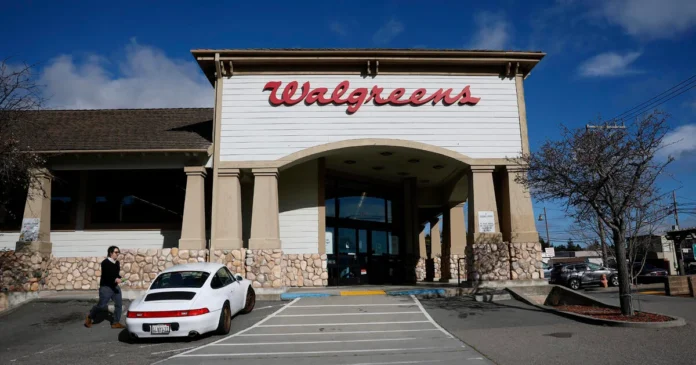Walgreens Acquisition: Walgreens Moves to Private Ownership
It has been confirmed that Walgreens Boots Alliance will transition into private ownership as Sycamore Partners acquires the company in a $10 billion deal. The move comes at a time when the pharmacy chain has been grappling with declining prescription reimbursements, changing consumer spending habits, and intensified competition from retail giants.
The Challenges That Led to the Buyout
For years, major pharmacy chains, including Walgreens, have struggled with lower reimbursements for prescriptions. The traditional business model of large-scale brick-and-mortar pharmacies has been under increasing financial strain. Additionally, reduced consumer spending amid economic pressures and fierce competition from e-commerce leaders like Amazon and big-box retailers such as Walmart have further eroded Walgreens’ profitability.
In response, Walgreens has taken steps to streamline operations. Store closures have been a key part of its cost-cutting strategy, with around 1,200 stores in the U.S. slated for shutdown over the next three years. Reports indicate that only 6,000 of its U.S. locations remain profitable.
Financial Decline & Shareholder Impact
A significant drop in Walgreens’ market value has been evident in recent years. Once boasting a valuation exceeding $100 billion, the company’s worth plummeted below $8 billion before talks of the acquisition surfaced. The deal with Sycamore Partners values Walgreens shares at $11.45 each—an 8% premium over its recent closing price.
Despite recording a net loss of $8.6 billion for the 2024 fiscal year, Walgreens did manage to exceed earnings and revenue expectations in its latest quarterly report, signaling potential for stabilization. Following the announcement of the buyout, Walgreens’ shares rose nearly 6% in after-hours trading.
Leadership Shifts & Business Strategy Adjustments
Frequent leadership transitions have contributed to Walgreens’ struggles. CEO Tim Wentworth, who took over in October 2023, emphasized that long-term value creation requires structural changes that are best managed as a private company. His predecessor, Rosalind Brewer, stepped down after just two years, reflecting the instability at the company’s highest levels.
Industry analysts suggest that Walgreens could have benefited from an improved consumer experience, expansion of private-label products, and a stronger focus on customer needs to drive profitability.
Sycamore Partners’ Strategy & Potential Future Moves

Sycamore Partners, a private equity firm known for investments in retail and consumer brands, has now extended its reach into the healthcare sector with this acquisition. The firm’s history includes the $7 billion purchase of Staples and investments in brands such as Hot Topic and Ann Taylor.
There is speculation that Sycamore may choose to divest certain segments of Walgreens or collaborate with partners to restructure the business. Interest from other private equity firms in Walgreens has surfaced in the past, including a $70 billion acquisition bid by KKR in 2019.
The Broader Industry Landscape
Walgreens is not the only pharmacy chain undergoing a transformation. Competitors such as CVS and Rite Aid have also taken measures to restructure. Rite Aid, for instance, filed for bankruptcy in 2023 and announced the closure of 154 stores. These trends indicate an industry-wide shift driven by economic pressures and evolving consumer behaviors.
What’s Next for Walgreens?
The Walgreens-Sycamore deal is expected to close in the fourth quarter of 2025, with the total transaction value reaching $23.7 billion when debt and additional payouts are considered. The move to private ownership could provide Walgreens with the flexibility to implement necessary reforms outside the scrutiny of public markets.
As the pharmacy industry continues to evolve, the question remains: Will Walgreens’ transition under Sycamore Partners mark a turning point for the brand, or will further restructuring be required? The coming years will reveal how this acquisition reshapes the company’s future.
This acquisition signals a pivotal moment for Walgreens and the broader pharmacy industry. Stay tuned for updates as the company embarks on this new chapter under private ownership.


